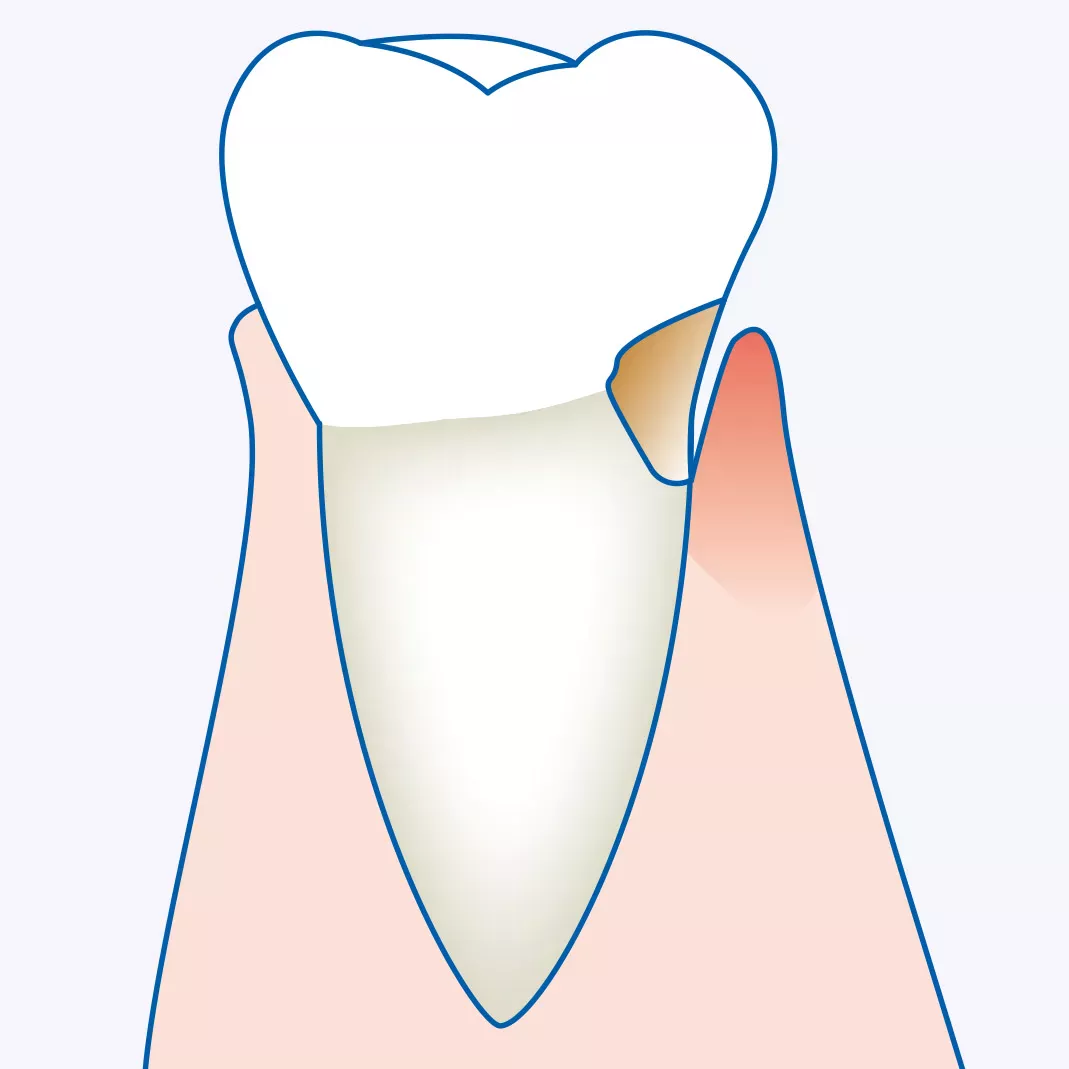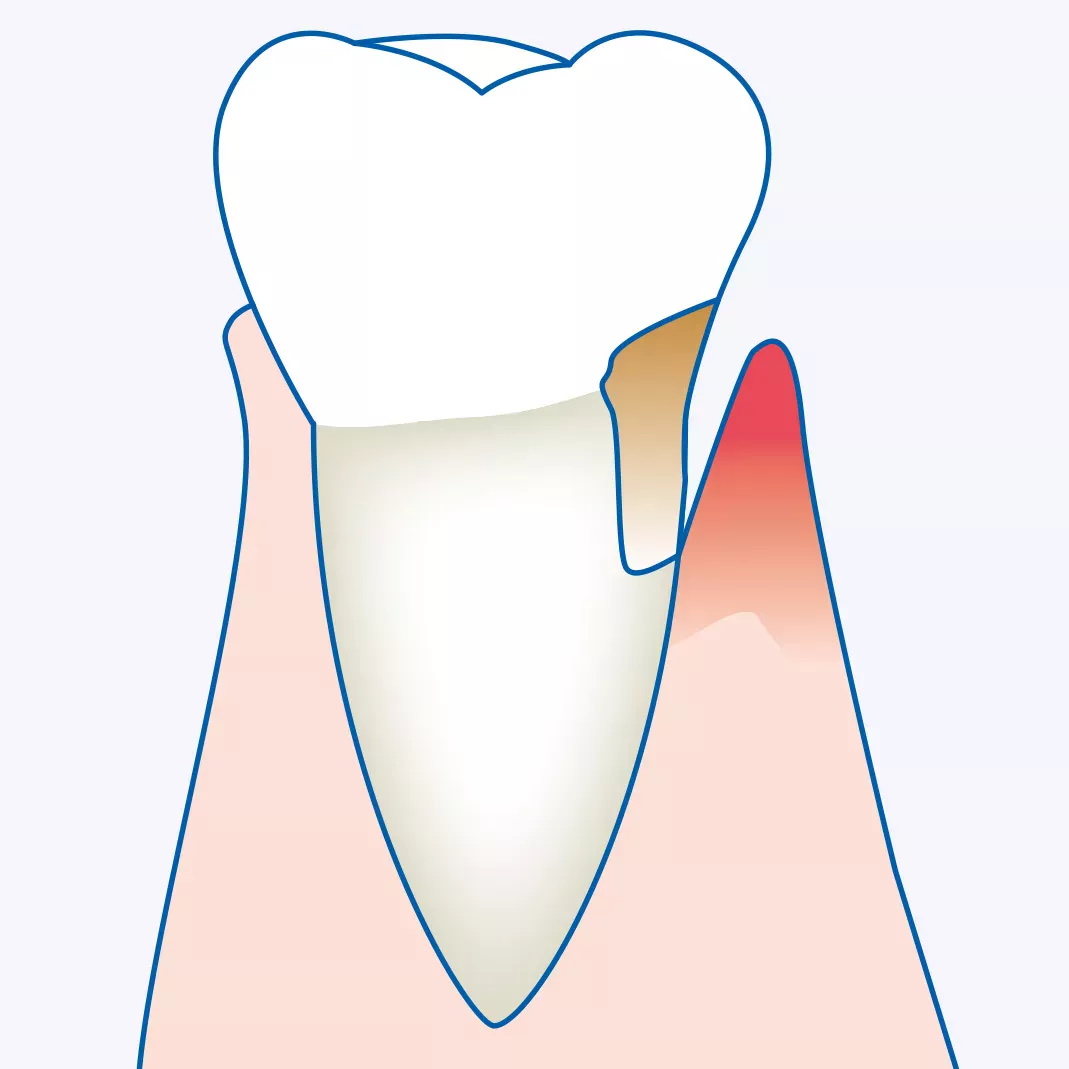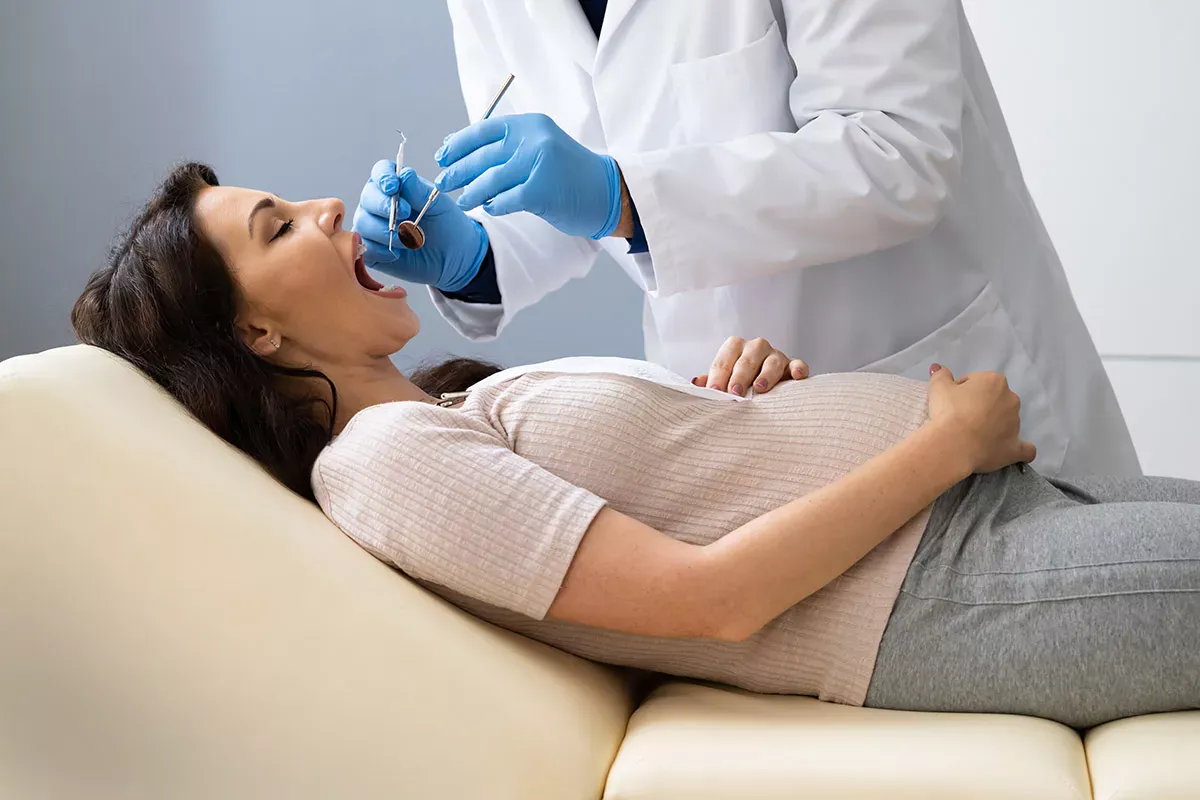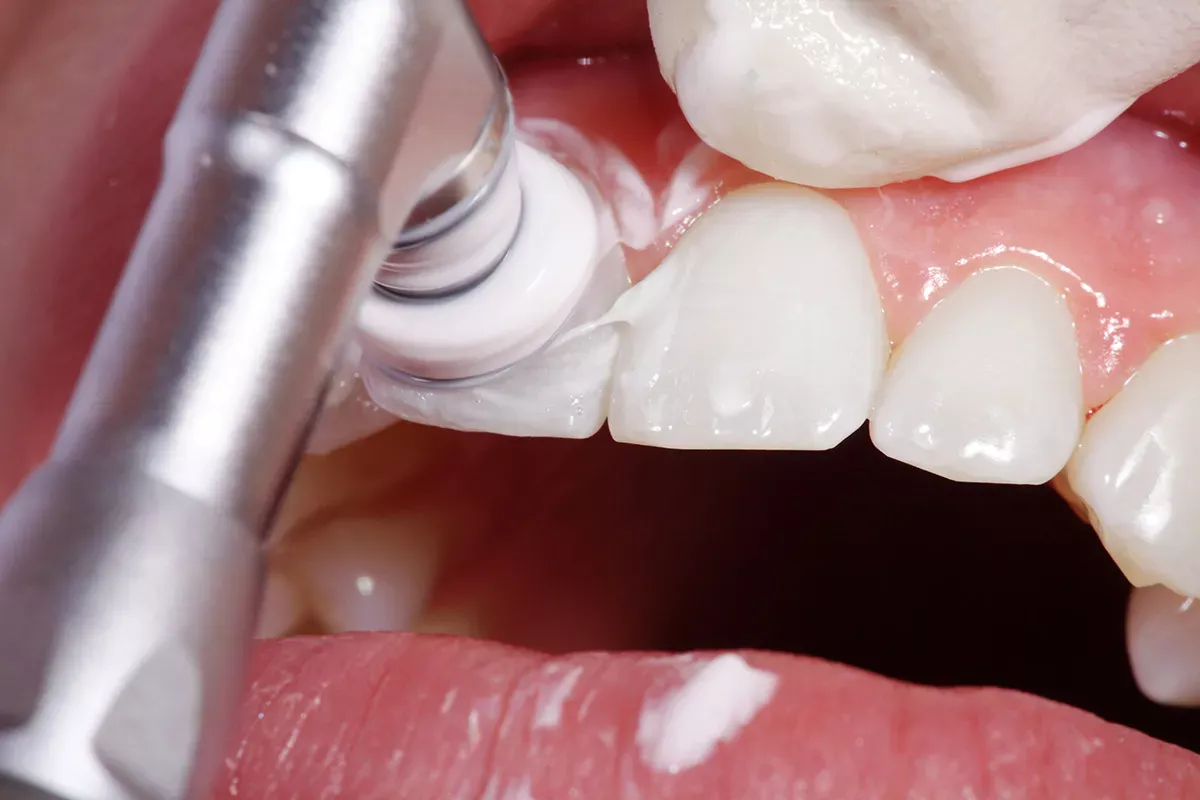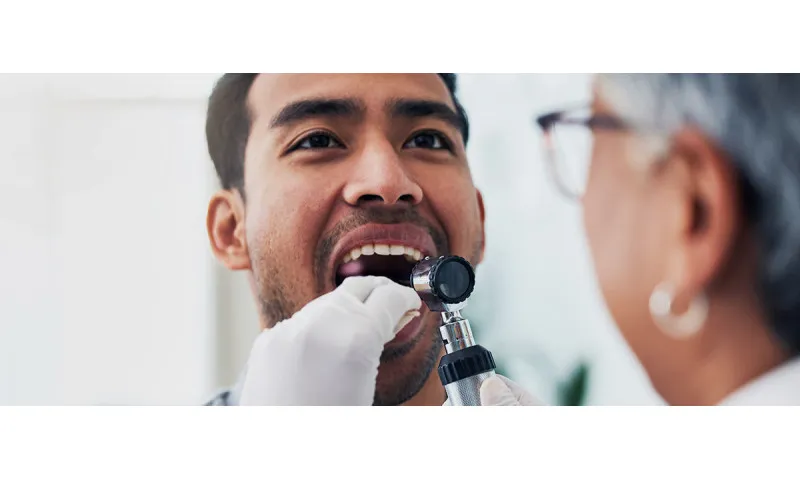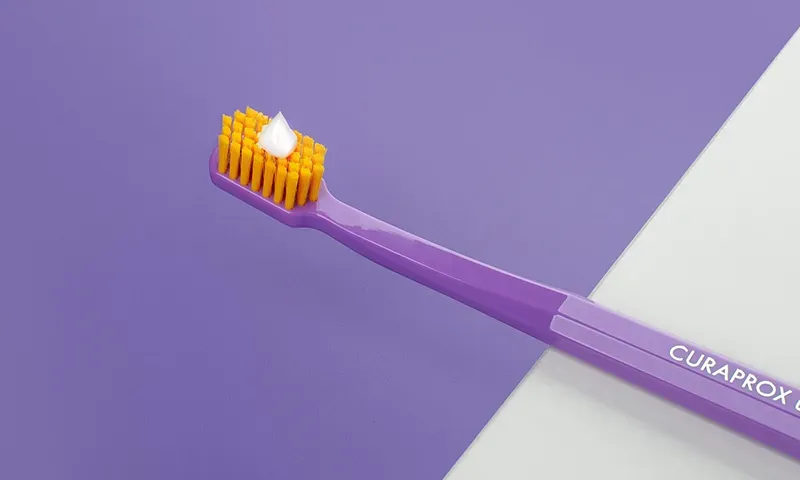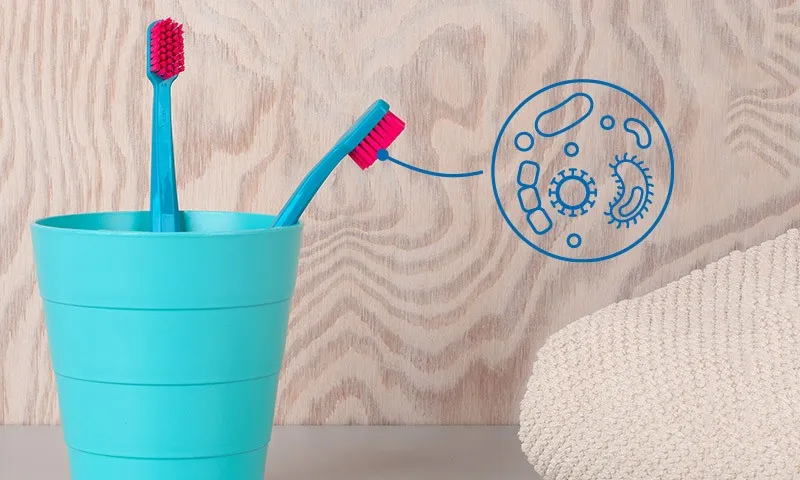Why does pregnancy have an impact on dental health?
It is well known that all kinds of discomfort can occur during pregnancy: Many pregnant women have to deal with morning sickness, swollen feet or mood swings. It is less well known that pregnancy can also affect oral and dental health. Up to 80 per cent of pregnant women suffer from problems with their gums. But why does pregnancy affect oral health at all?
Hormones change
The hormonal changes during pregnancy ensure that the connective tissue throughout the body is loosened so that the baby has room to grow. This change also makes the gums looser so that bacteria can penetrate particularly easily. The pregnancy hormones also have an influence on the formation of dental plaque.
More blood in the body
During pregnancy, you have around 30 to 40 per cent more blood in your body than usual to supply your baby with oxygen. This also increases your blood pressure and can make it particularly easy for your gums to bleed.
Busy immune system
Strictly speaking, the baby in the mother's womb is a foreign body because it contains hereditary cells from the father as well as those from the mother. To prevent the body from rejecting the baby, the immune system must build up a tolerance to the foreign cells. As the immune system is busy with this important task, fewer resources are available for immune defence and bacteria have an easier time.
Low pH value of the saliva
During pregnancy, the pH value of saliva decreases, making it more acidic. As a result, it can no longer adequately protect the teeth from bacteria.
Toothache, gingivitis & co.: Possible dental problems during pregnancy
All the changes described during pregnancy - the hormonal changes, the increased blood volume, the busy immune system and the lower pH value - provide an ideal growth environment for bacteria. Pregnant women are therefore particularly susceptible to gingivitis, tooth decay and toothache. And for this very reason, it is particularly important that you pay particular attention to thorough dental care during pregnancy.
Let's take a closer look at the possible dental problems:
Gum inflammation and periodontitis
Up to 80 per cent of pregnant women suffer from gingivitis or other gum problems. That's why there's even a name for it: Pregnancy gingivitis. The gums become inflamed particularly easily as the tissue is swollen due to the hormonal changes and is not close to the tooth as usual. This means that bacteria from the plaque can easily penetrate the gums, multiply and cause inflammation. The typical first sign of gingivitis is bleeding gums. The severity of the symptoms varies from woman to woman: some women only experience slight bleeding of the gums on individual teeth, while other women can experience heavy bleeding on all their teeth even if they touch them lightly. Gum growths can also occur in rare cases.
Good to know:
The best way to treat gingivitis is to brush your teeth thoroughly - even if it bleeds. You can find out exactly how gingivitis develops and how best to treat it in our article:
If gingivitis is not treated and the bacteria continue to spread undisturbed, it can develop into periodontitis: The entire periodontium becomes inflamed, the gums and jawbone recede and gum pockets form in which the bacteria can settle. In the advanced stage, the tooth necks are exposed due to the receding gums and the teeth can become loose and, in the worst case, even fall out.
Increased risk of premature births with periodontitis
If you are pregnant, you should definitely have periodontitis treated. This bacterial infectious disease increases the risk of premature birth sevenfold. The inflammatory bacteria can enter the bloodstream and cause a premature birth. Several studies have now shown that women with healthy teeth have a very low risk of premature birth, while women who had a premature birth predominantly suffered from severe gum disease and had an increased proportion of the body's own defence products in their blood.
It is therefore all the more important that you take good care of your teeth during pregnancy and have gum inflammation treated to prevent periodontitis from developing in the first place.
Caries
Tooth decay occurs when the bacteria in plaque metabolise sugar into acid and this acid then attacks the tooth enamel. As the protective function of saliva is reduced due to the lower pH value and pregnant women are more susceptible to dental plaque, the risk of tooth decay is higher than usual during pregnancy. In addition, pregnant women often have cravings for sweet or sour foods. Whether the acid comes directly from the orange juice or lemonade or the chocolate has to be metabolised into acid first - these foods endanger your dental health and increase the risk of tooth decay.
Good to know:
If you suffer from tooth decay, it can also be harmful for your child. This is because tooth decay is contagious. Caries bacteria, which are transmitted after birth through kissing or licking spoons or dummies, can already infect the little baby teeth. You can find out exactly how tooth decay develops and what you can do to prevent it here:
Toothache due to morning sickness
Frequent vomiting, which occurs in many women, especially in the first few months of pregnancy, can also damage tooth enamel. If the teeth come into frequent contact with stomach acid, they can be damaged. On the one hand, this increases the risk of tooth decay, and on the other hand, your teeth may suddenly become sensitive to pain. If the enamel is damaged, nerve tracts from the underlying layer, the dentine, may be exposed. This can lead to stinging toothache, especially on contact with sweet, sour, cold or hot foods. In the worst case, teeth that have already been damaged can also break.
You can find tips on treating sensitive teeth in our article:
What can you do about sensitive teeth?
Tooth loss
It used to be said: "Every child costs a tooth." It was believed that the minerals needed to build the baby's teeth and bones would be taken from the mother's teeth and bones. This assumption has since been disproved. Today we know that the baby absorbs all the nutrients from the mother's food. Nevertheless, there is a grain of truth in this statement. In a study, German and Dutch scientists found that there is a correlation between the dental health of mothers and the number of children they have given birth to. Mothers over 50 with three children have on average four fewer teeth in their mouths than mothers with only two children. This correlation does not exist for fathers.
The researchers suspect that, in addition to the unfavourable conditions during pregnancy already described, other reasons could also play a role: for example, some women may delay necessary treatments due to a lack of money or time.
Dental treatments during pregnancy
To keep your teeth as healthy as possible during pregnancy, you should definitely go for dental prophylaxis and have yourself examined by a dentist. In this section, you will find out when the right time is for which examination and which treatments can also be carried out during pregnancy.
When should you visit the dentist during pregnancy?
Ideally, women who want to have children should go to the dentist before they become pregnant and tell the dentist that they want to become pregnant so that they can get their dental health in order beforehand. This way, any necessary treatments can already be completed so that nothing stands in the way of a healthy pregnancy.
If you are already pregnant, you should see a dentist as soon as possible. An oral health consultation is also recommended by the antenatal clinic. It is best to visit your dentist at the beginning of your pregnancy and inform them about your pregnancy. The dentist can also check whether there are any dental problems that need to be treated. You should schedule another appointment for an examination in the second trimester.
In addition, if you have toothache outside of your check-up appointments, you should always go to the dentist and have your teeth checked as a precaution.
Which trimester is best for dental treatment?
Dentists generally advise against dental treatment in the first and third trimester because it can disrupt the baby's organ formation in the first trimester and stress can cause premature birth in the third trimester. For this reason, necessary dental treatment is usually carried out in the second trimester. However, this only applies to minor or acutely necessary treatments. Complex invasive treatments are usually postponed until after the birth, if possible. The dentist carefully weighs up the benefits and risks of each treatment measure.
However, check-ups are useful in both the first and third trimester. At a dental appointment in the third trimester, you will receive helpful tips for the time after the birth and also for dental care for babies.
Which treatment measures may be carried out during pregnancy?
You can have the following treatments carried out during pregnancy without any problems:
Professional teeth cleaning
No matter how thoroughly you brush your teeth, it is completely impossible to reach every last corner. During a professional dental cleaning, plaque and tartar - and the bacteria on them - are carefully removed. Experts recommend one to two professional dental cleanings per pregnancy to reduce the risk of gum inflammation, periodontitis and tooth decay.
If you experience pain or sensitive teeth after your teeth cleaning, there is no need to worry. These symptoms usually subside quickly. Professional teeth cleaning is not dangerous during pregnancy and is also safe during breastfeeding.
Periodontitis treatment
If a dental examination reveals that you suffer from pardonotitis, this must be treated during pregnancy in order to reduce the risk of premature birth.
Good to know:
You can find out which treatment measures are used for periodontitis in our article:
Acute caries treatment during pregnancy
Obvious tooth decay that causes pain can also be treated during pregnancy. However, since July 2018, amalgam fillings may no longer be used in pregnant women in the EU because they contain mercury and their compatibility is controversial. The statutory health insurance fund therefore pays for a plastic filling in this case. In the case of minor tooth decay that does not cause pain, treatment can also be postponed until after the birth. In this case, your dentist will weigh up the benefits and risks.
Local anaesthesia
If dental treatment becomes necessary during pregnancy, you do not have to endure it in pain. Local anaesthesia is also possible during pregnancy. There is no evidence that local anaesthesia could be harmful to the child. Nevertheless, you should consult your gynaecologist as a precaution.
Which treatments should be avoided during pregnancy?
Serious invasive procedures such as tooth extractions or root canal treatments should be avoided during pregnancy. However, such procedures may still be necessary because the mother would otherwise suffer from extreme toothache. In this case, the treatments are usually carried out in the second trimester.
The following treatments should also be avoided:
X-ray diagnostics
Even if the radiation exposure during dental x-rays is very low, pregnant women must not be x-rayed. This is especially true for the first three months.
Medication
Taking medication can have negative effects on a child's development. Certain antibiotics, for example, can discolour the teeth. Under certain circumstances, painkillers can lead to kidney damage or vascular occlusion in the heart of the unborn child. It is therefore very important that you inform your dentist about your pregnancy and consult your gynaecologist before taking any medication.
Also important: If you are having dental treatment, your dentist needs to know that you are pregnant so that they can use the right rinse during treatment: Disinfectants with chlorhexidine are safe during pregnancy. However, rinses with iodine or neomycin should be avoided. Too much iodine can have a negative effect on the child's thyroid function.
Tooth bleaching
It is not yet clear whether professional tooth whitening can harm the unborn child or not. It is therefore better not to bleach your teeth during pregnancy.
You should also definitely avoid home remedies such as brushing your teeth with salt, baking powder or lemon juice during pregnancy. These methods further damage your tooth enamel, which is already very stressed during pregnancy. You should also avoid using home remedies to relieve toothache during pregnancy. Even though sage and cloves can help with inflammation and pain, they are not safe to use during pregnancy because they can trigger premature labour.
10 tips for proper dental care during pregnancy
As you already know, proper dental care is incredibly important during pregnancy. But what exactly does it look like? And what do you need to pay particular attention to during pregnancy? We have ten tips for you:
1. Brush your teeth thoroughly twice a day
The right dental care routine during pregnancy definitely includes brushing your teeth - at least twice a day with a soft toothbrush and at least once a day with an interdental brush. Ideally, you should do this in the morning after breakfast and in the evening before going to bed. Brushing your teeth in the evening is particularly important: bacteria have an even easier time at night because saliva production is reduced. If you brush away plaque thoroughly before going to bed, you minimise the risk of tooth decay and gingivitis.
And what exactly is the right technique? We explain this to you step by step in our ultimate guide to brushing your teeth properly:
Instructions: Brushing your teeth
2. Clean interdental spaces once a day
It is impossible to get into the narrow interdental spaces with a normal toothbrush. They are therefore the ideal breeding ground for bacteria - and often the starting point for tooth decay and gingivitis. To avoid this, you should brush the spaces between your teeth once a day with interdental brushes.
You can find out exactly how to do this in our instructions:
Instructions: Clean interdental spaces properly
Important: If you notice blood on your gums after using the interdental brush for the first time, there is no need to worry. You have discovered an inflammation and should now continue to clean your interdental spaces every day. The inflammation will disappear within seven days.
Good to know:
Curaprox interdental brushes are available in different sizes. It is best to consult your dentist to find out which size is right for you. To achieve the best possible cleaning power, the size should fit exactly. If the brush is too small, it will not clean properly. If it is too big, you may injure your gums.
3. Supplying teeth with fluoride
Fluoride hardens tooth enamel and protects against tooth decay. You should therefore use a fluoride-containing toothpaste for dental care during pregnancy. As the tooth enamel is exposed to more stress than usual due to the lower pH value and frequent vomiting, you can also use a fluoride gel once a week.
We do not recommend the regular use of a disinfectant mouthwash with fluoride because it disrupts the oral flora. However, in the case of acute gum inflammation, it may be useful to use an antibacterial mouthwash with chlorhexidine (for example, the Perio plus range of mouthwashes from Curaprox). Ask your dentist for advice on this.
Rumours are constantly circulating that fluoride is harmful. Don't let this unsettle you. The amount of fluoride used in dental care products is completely harmless and extremely effective in the fight against tooth decay. If you would like to know more about this topic, you are welcome to read our article:
Good to know:
Which toothpaste is particularly good for pregnancy?
- Enzycal toothpaste with fluoride from Curaprox is particularly gentle on the gums, while using natural enzymes to stimulate saliva production and strengthen the body's defences.
- The 'Be you' toothpaste from Curaprox is free from harmful ingredients and provides a gentle whitening effect thanks to a natural enzyme.
4. Use a soft toothbrush
Did you know that soft toothbrushes clean your teeth much more thoroughly and better than hard toothbrushes? They are also much gentler on your gums - and this is particularly important during pregnancy. After all, gums are exposed to many factors during pregnancy. A toothbrush that is too hard does not have to cause bleeding gums.
We also recommend brushing with a soft toothbrush after pregnancy.
Good to know:
The CS 5460 ultra soft toothbrush from Curaprox is recommended by dentists all over the world because the soft bristles are particularly gentle on the gums and clean thoroughly at the same time. There are a total of 5460 super-fine bristles on the brush head - that's about ten times as many as a conventional toothbrush. If you like it even gentler, the CS 12460 velvet with 12,460 bristles is the right choice for you.
5. Rinse mouth after acid and brush later
You already know that stomach acid is bad for your teeth. If you suffer from morning sickness, you should rinse your mouth with water after vomiting and wait at least half an hour before brushing your teeth. Otherwise, you risk further eroding the damaged tooth enamel. The same also applies if you have eaten something sweet or sour!
6. Brush with a children's toothbrush in case of nausea
Many women have difficulty brushing their teeth in the morning because the toothbrush causes nausea in the mouth. If this is the case for you, try a children's toothbrush with a smaller head - for example, the CS smart ultra soft from Curaprox.
7. Go to the dentist at least twice
Make an appointment with your dentist to have your mouth checked right at the start of your pregnancy - or even better, while you are still trying to conceive. It is best to make the second appointment in the second trimester, as treatments are possible during this period. You can also have another check-up in the third trimester and get tips for the time after the birth.
8. Have your teeth professionally cleaned once or twice
To keep your teeth healthy during pregnancy, you should have your teeth professionally cleaned once or twice. Dental professionals can use specialised equipment to remove plaque and tartar - hardened plaque - particularly thoroughly. In addition, a fluoride varnish is usually applied as an additional protective layer at the end of the professional dental cleaning.
9. Pay attention to a healthy diet
Cravings for sweet, sour and savoury foods are normal during pregnancy, but they also increase the risk of tooth decay. Instead of snacking or drinking sweet drinks all day long, you should treat yourself to a sweet dessert or a few pieces of chocolate once during a main meal. This way, your teeth are only attacked once and not constantly. Due to the change in the pH value of saliva, plaque build-up increases during pregnancy - especially from sugary and carbohydrate-rich foods such as bread, pasta and crisps.
If you want to do something for your dental health, you should eat lots of fruit and vegetables - preferably raw. This is because strong and prolonged chewing helps to strengthen the gums.
10. Chew sugar-free chewing gum with xylitol
In contrast to sweet, salty or sour cravings, chewing sugar-free gum is not harmful, but helpful. Chewing stimulates the flow of saliva and helps to combat dry mouth, while xylitol, a natural sugar substitute, also protects against tooth decay.
Good to know:
The Black is white chewing gum from Curaprox not only provides a delicious lime-minty-fresh taste in the mouth, but also fills incipient cavities with hydroxyapatite and remineralises the tooth enamel. At the same time, xylitol protects against tooth decay.
Sources
AllDent Dental Centre: Pregnancy & Teeth.
Bayerische Landeszahnärztekammer: Schwanger zum Zahnarzt, Tipps für gesunde Zähne in der Schwangerschaft und Zahngesund durch die Schwangerschaft, on: zahn.de.
Bundeszentrale für gesundheitliche Aufklärung: Beschwerden in der Schwangerschaft: Zähne und Zahnfleischbluten, on: familienplanung.de.
Carstens, Peter: Pregnancy and teeth: Why it's true that every child costs a tooth, on: geo.de.
Cochrane: Supplemental iodine for women before, during and after pregnancy.
Dentolo: Why optimal dental care is particularly important during pregnancy.
German Society for Dental, Oral and Maxillofacial Medicine (DGZMK): Visiting the dentist during pregnancy.
Die Pluszahnärzte: Bleaching during pregnancy and breastfeeding - is it possible?
Dr Astrid Baumstieger & colleagues: Pregnancy and oral hygiene.
Dr Gal: Toothache during pregnancy: Why dental health is particularly important for pregnant women.
Gabel, Frank et al: Gain a child, lose a tooth?Using natural experiments to distinguish between fact and fiction, in: Journal of Epidemiology & Community Health. 2018.
Initiative proDente: Prevent premature birth - off to the dentist and pregnancy.
IWW Institute: Dentistry Report: Pregnant patients: What can dentists do - what must they do?
Kassenzahnärztliche Bundesvereinigung (KZBV): Dental health during pregnancy.
Leimleck, Birgit: Pregnancy. Take good care of your teeth, on: eltern.de.
Nemat, Katja: Immunsystem und Schwangerschaft, on: allergieinformationsdienst.de.
Pharmacovigilance and Advisory Centre for Embryotoxicology: Minocycline and povidone-iodine, at: embryotox.de.
Scholz-Hinton, Sabine: Toothache during pregnancy. A common phenomenon and what you can do about it.
Stiebritz, Charlotte: Sage tea during pregnancy: Why you should be careful, on: utopia.de.
Breastfeeding lexicon: Dental treatment during breastfeeding.
Zelle-Möhlmann, Elena: What pregnant women should consider when caring for their teeth, on: apotheken-umschau.de.
All websites last accessed on 05.01.2024.
 Swiss premium oral care
Swiss premium oral care

